Architectural drawing
Ayọ̀ Akínwándé
Face-me-i-face-you: Architecture in the Age of Social Distancing
January 2021
This project is part of an invitation and on-going project with the Centre of Contemporary Art (CCA) Montréal, Canada.
I have begun to question certain elements of my Architecture training in the University in Nigeria. How ‘problems’ were incorporated into our design process. The colonial architecture brought about the use of the terms, “Boys Quarters,” and “Master’s Bedroom.” The former refers to small one or two bedroom apartments usually detached from the main building, and used for housing the servants; the latter is to indicate the private room dedicated to the Master.
Epileptic power supply in post-colonial Nigeria brought about the creation of “Generator Houses.” While the rich are able to create “architecture” for this space in their residential and commercial building projects, the poor resort to the use of small 1.8KVA generator sets that can be chained to windows, doors, etc.
I’m interested in the flow of information in global democratic discourses, and how it reflects existing power structures. My on-going project “Archiving the Future,” involves collecting/archiving social media screenshots, and sound recordings of conversations at bus stops in Lagos. My long-term exhibition series “Power Show,” creates visual monologues and dialogues on socio-political realities in my society as I incorporate architectural processes in a spatial detailing and sectioning of my ideas and thoughts, to evoke both intimacy, and monumentality.
My research into power has also taken me into the public realm, where cities are sectioned along social classes and power lines. In colonial Lagos, the British tapped into the people’s beliefs about the dead, using the cemetery as a buffer to separate themselves from the people. Power structures in Nigeria are built around class, and not race, and this intersects with issues of religion and ethnicity, manifesting with tribalism, oppression, suppression, corruption, poverty, crimes, and lack of basic amenities for citizens.
As an artist, I’m constantly submerged into new locals. Between 2018-2020, I worked in diverse cities including Marrakech, Accra, Nairobi, Mombasa, Glasgow, London, Lisbon, Habana, and Montréal. Every city offers multiple possibilities for the future, and power structures in place often elide those possibilities in order to legitimate their powers.
In the summer of 2019, the Fonderie Darling invited me to Montréal as the recipient of its Place Publique Residency award, and commissioned me to create a public artwork, https://www.ayoakinwande.com/theorchestra, as part of my ongoing research on public spaces. This provided me with the opportunity to visit the CCA, undertaking self-initiated research on public housing, and the archives of Gordon Matta-Clark.
I have been fascinated by the oeuvre of Gordon Matta-Clark. His practice reminds me of the cutting into buildings in Nigeria when the government expands roads. Lagos has a housing deficit of over 2.5million units, and yet luxury homes are being built with little to no occupants, while more than two-thirds of the population live in slums. From 2015 - 2018, I lived in a ‘brutalesque’ building – which reminds me of Habitat 67 – in the suburbs of Lagos that had 10,000 residents. I made photographs, videos, and kept documents of my time there. Residents are crammed into small spaces, with neighbours literally facing each other, sharing kitchen, toilet, and bathrooms, hence the coinage of the popular Lagosian phrase “Face-Me-I-Face-You.”
In 2019, I was part of a yearlong virtual reality project with three other artists/designers, aimed at developing a global collaborative artwork, and exploring concepts of home across 4 continents. https://twitter.com/HousewarmingP. I have begun to see digital technology as increasingly useful in my work as a way of injecting new realities in a political system of make-believe. In a Nigerian context, problem solving in the public realm are always impractical to the lived experience of the majority. The digital sphere makes it possible to create an alternate/electronic solution. Using technology as a tool for advocacy, bringing to light power imbalances in marginalized communities.
For this project, I will explore the intersectionality between materiality and social construct in the built environment, and how this talks to colonial histories and systems of power. Our relationship with land always comes to the fore, either from a colonial/post-colonial, or a capitalist/economic, or an indigenous/religious perspective, and I will examine this through a combination of archives, materiality and Virtual Reality.
Face-Me-I-Face-You as a system of living in a pandemic situation is an ongoing conversation in Nigeria, and globally. Would a post-pandemic reality usher us into examining how we create housing for those in marginalized communities? Or would it be back to business, where the elite, and the political class create a system that caters for their privacy, while the rest of the people continue to survive, nose to nose, with their neighbours?
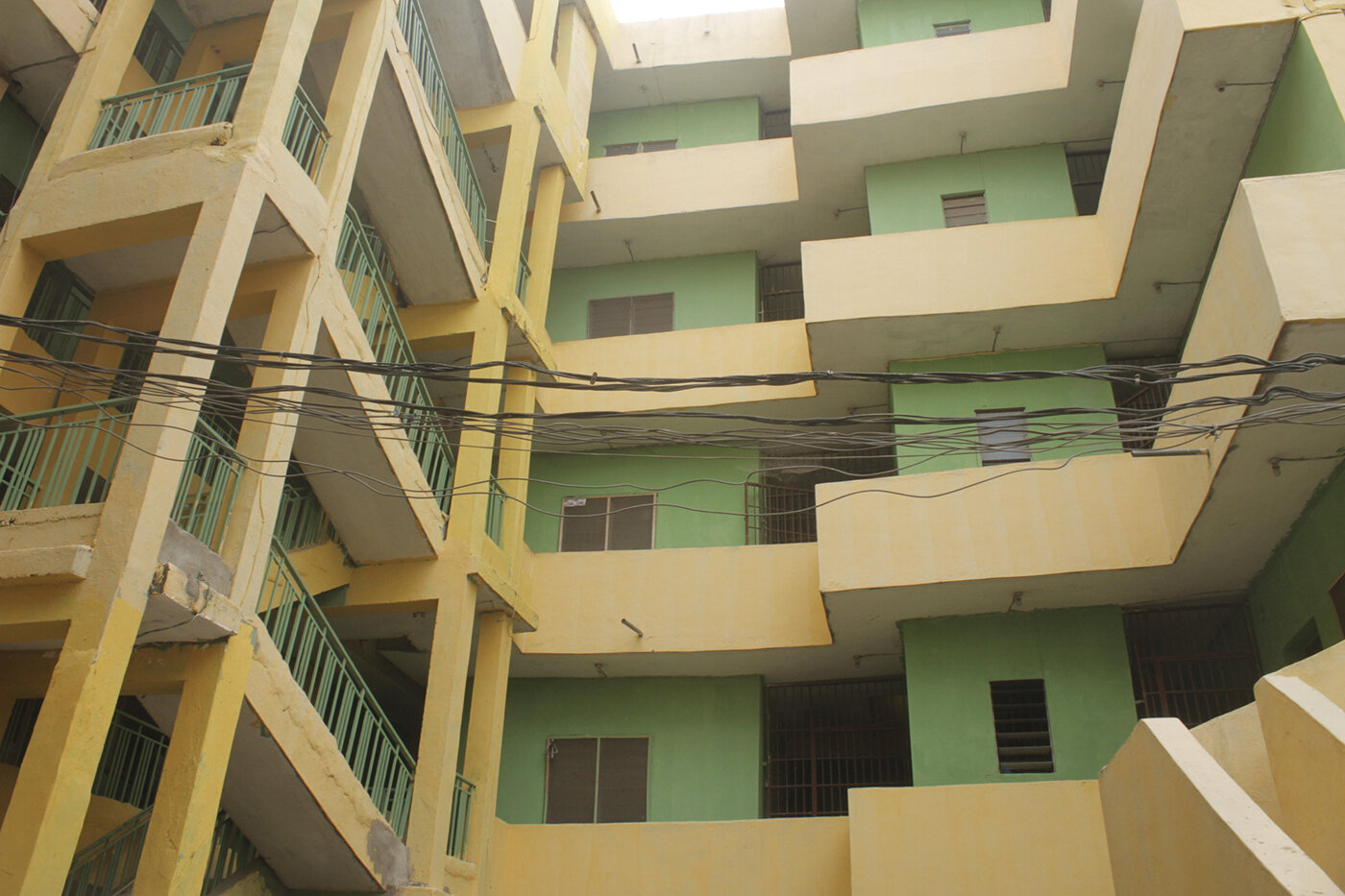
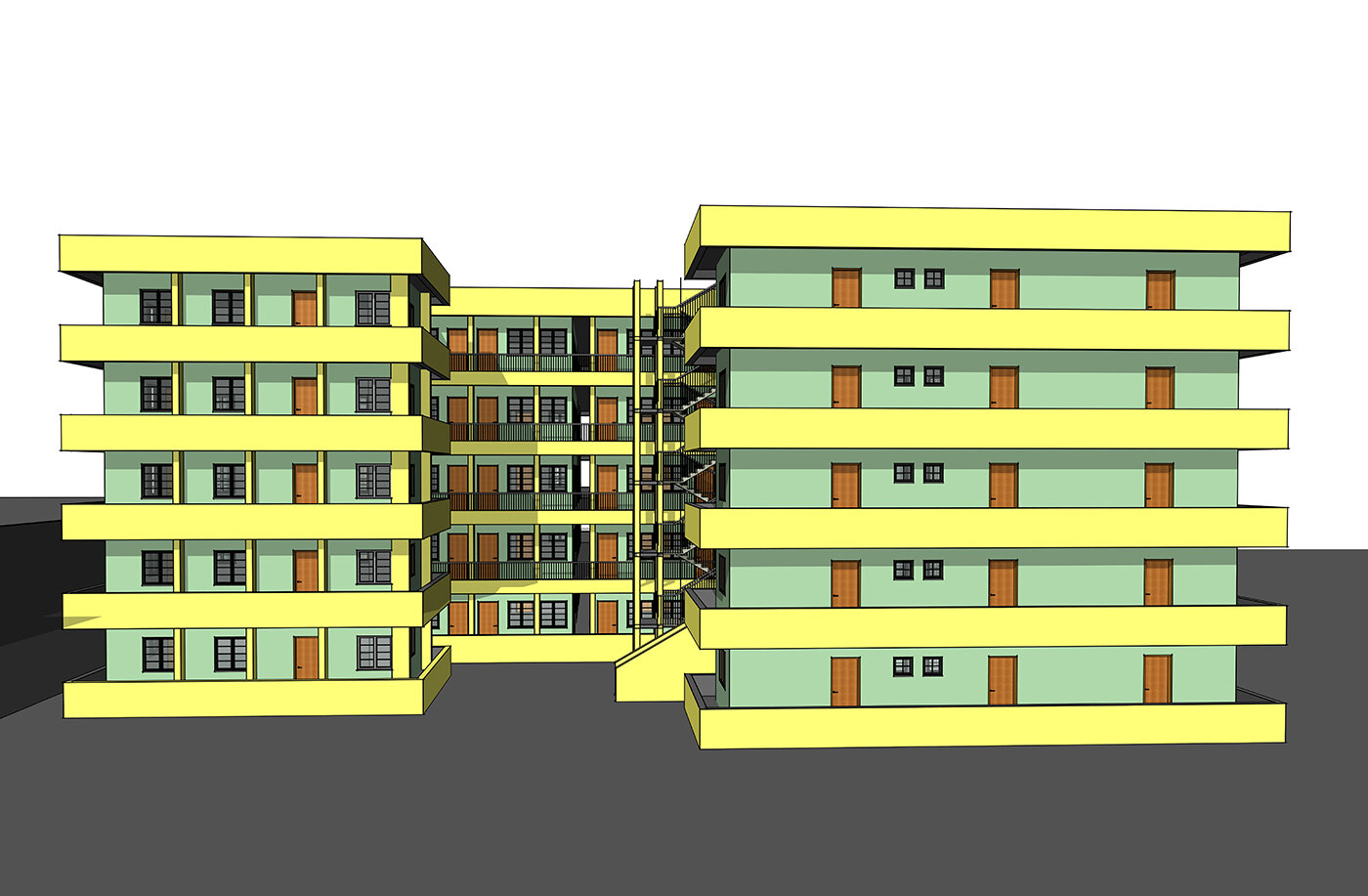
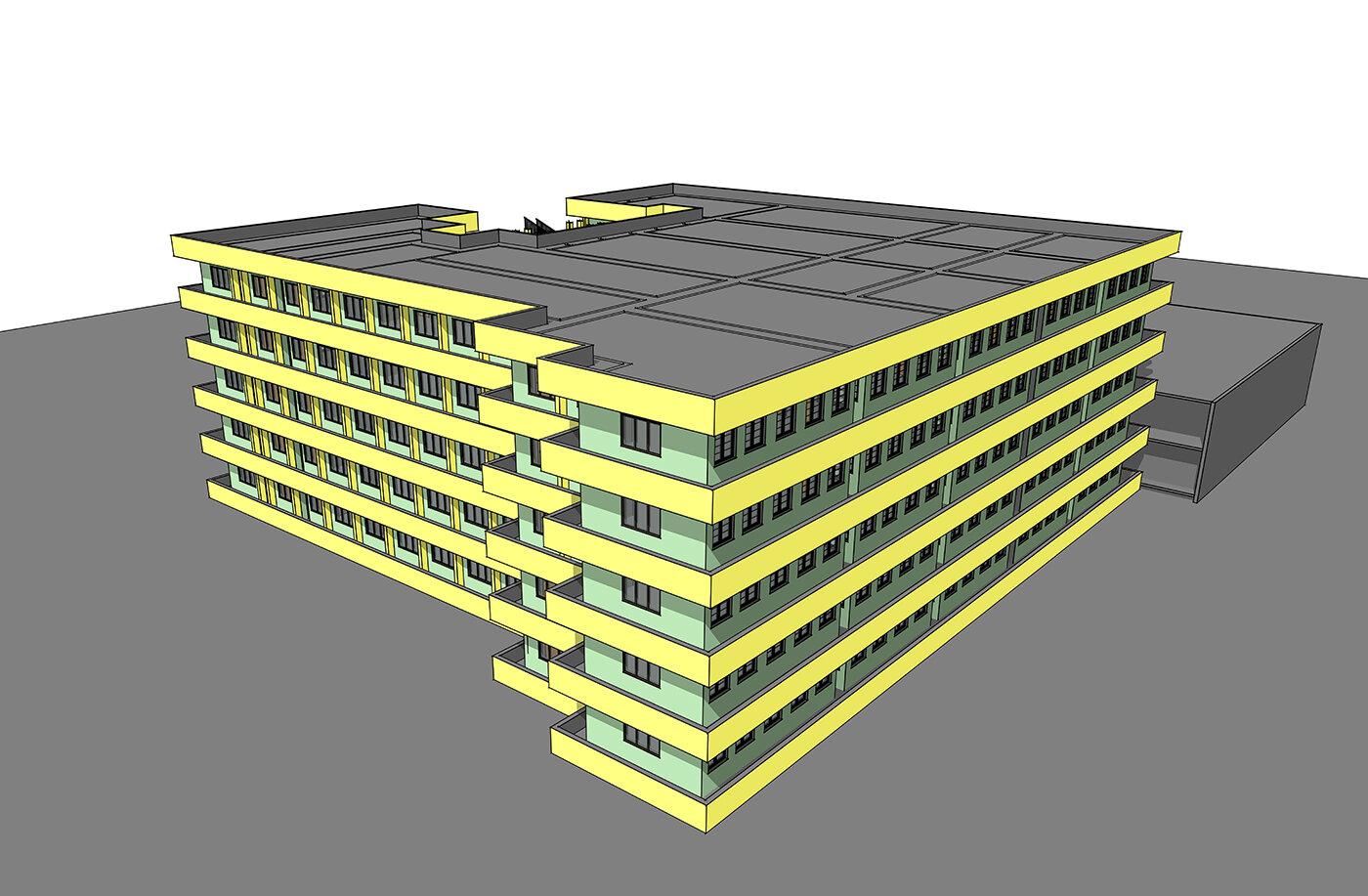
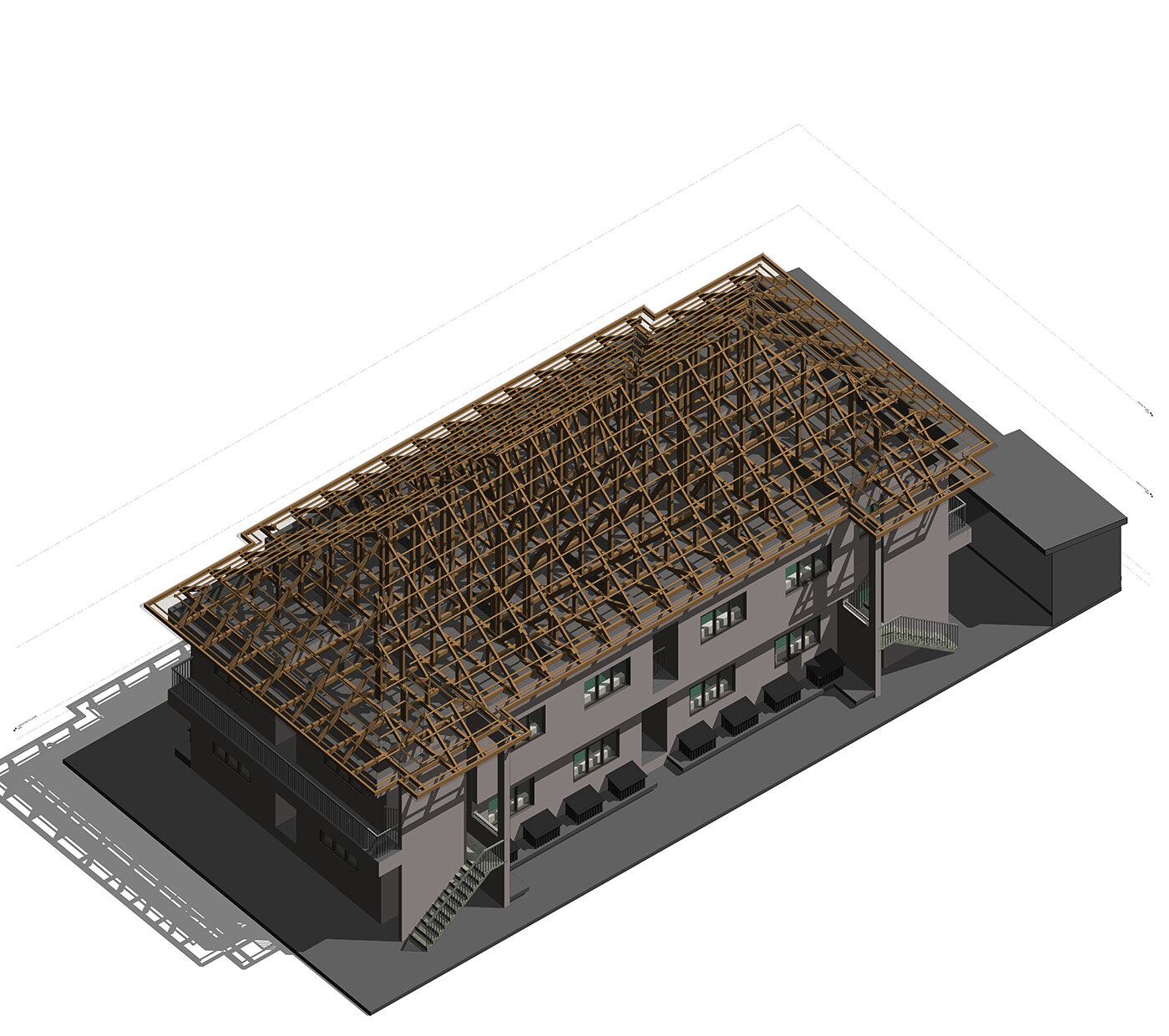
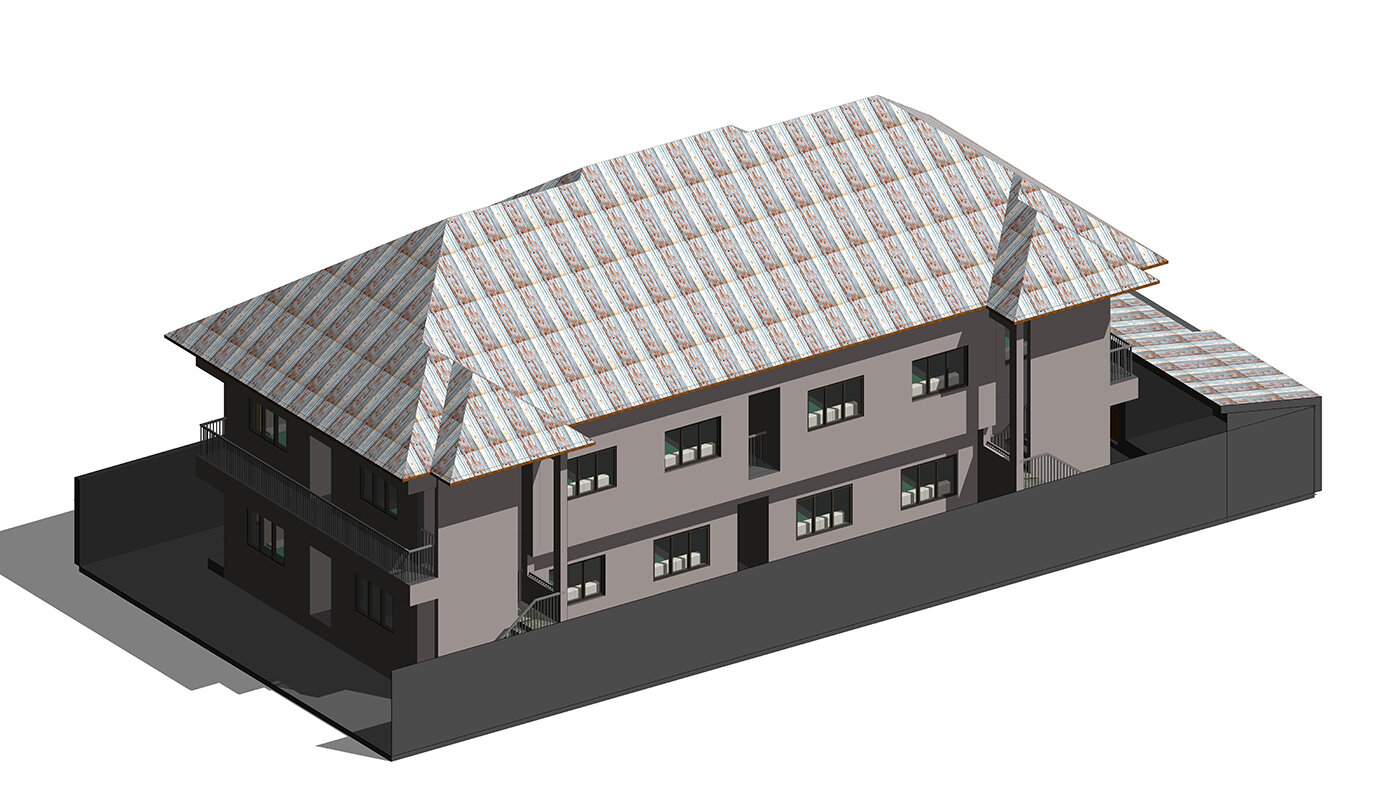
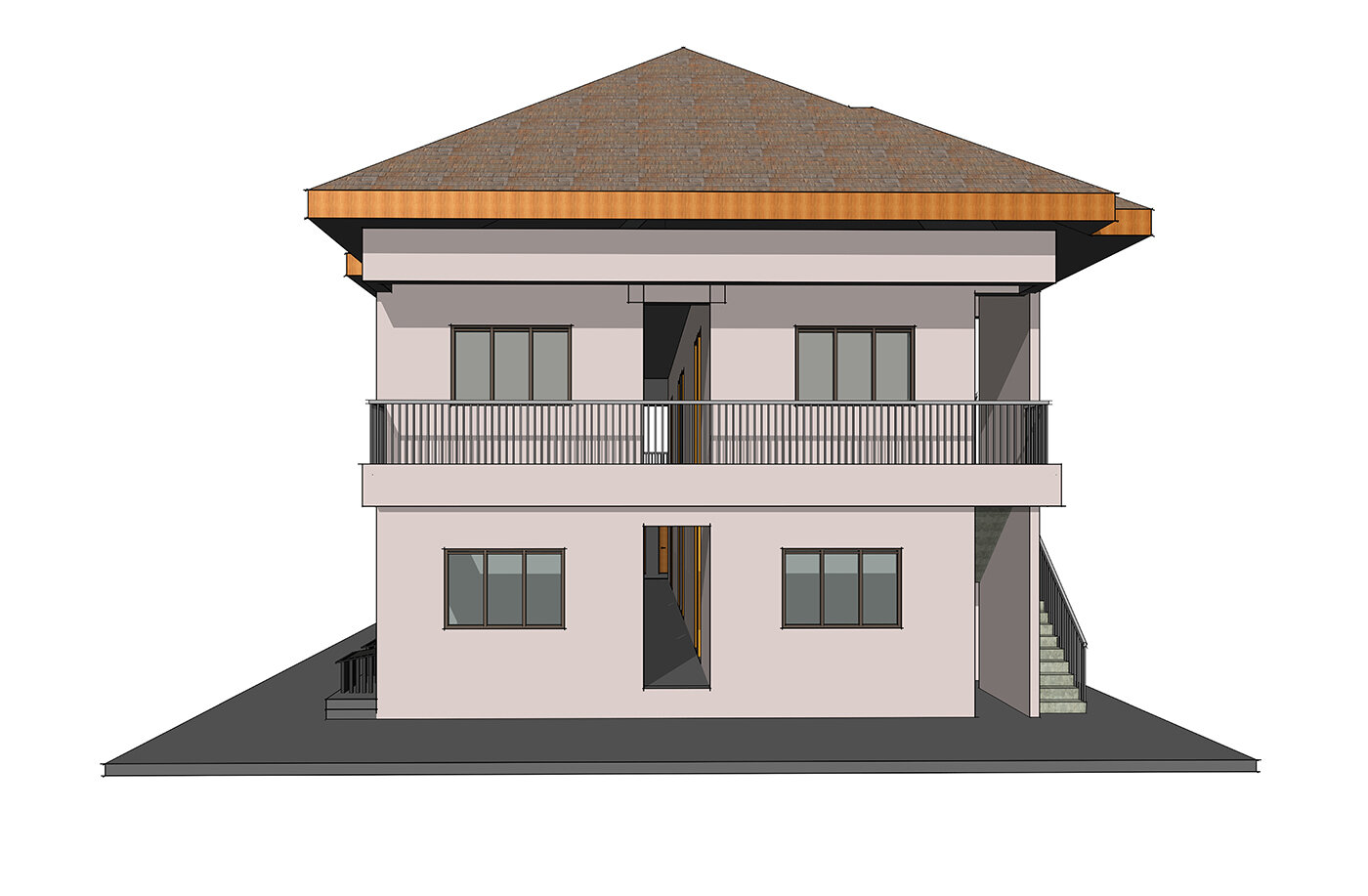
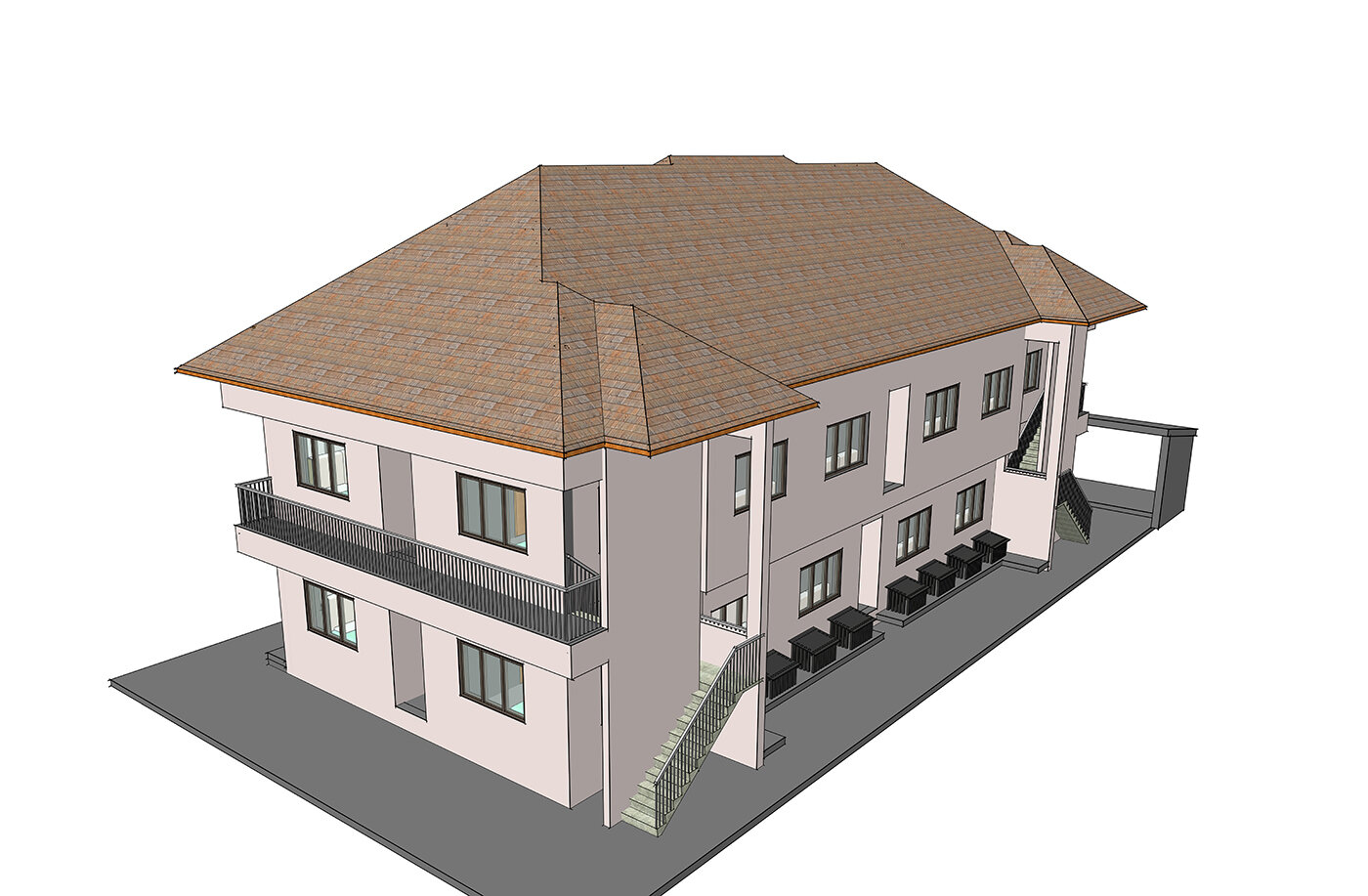
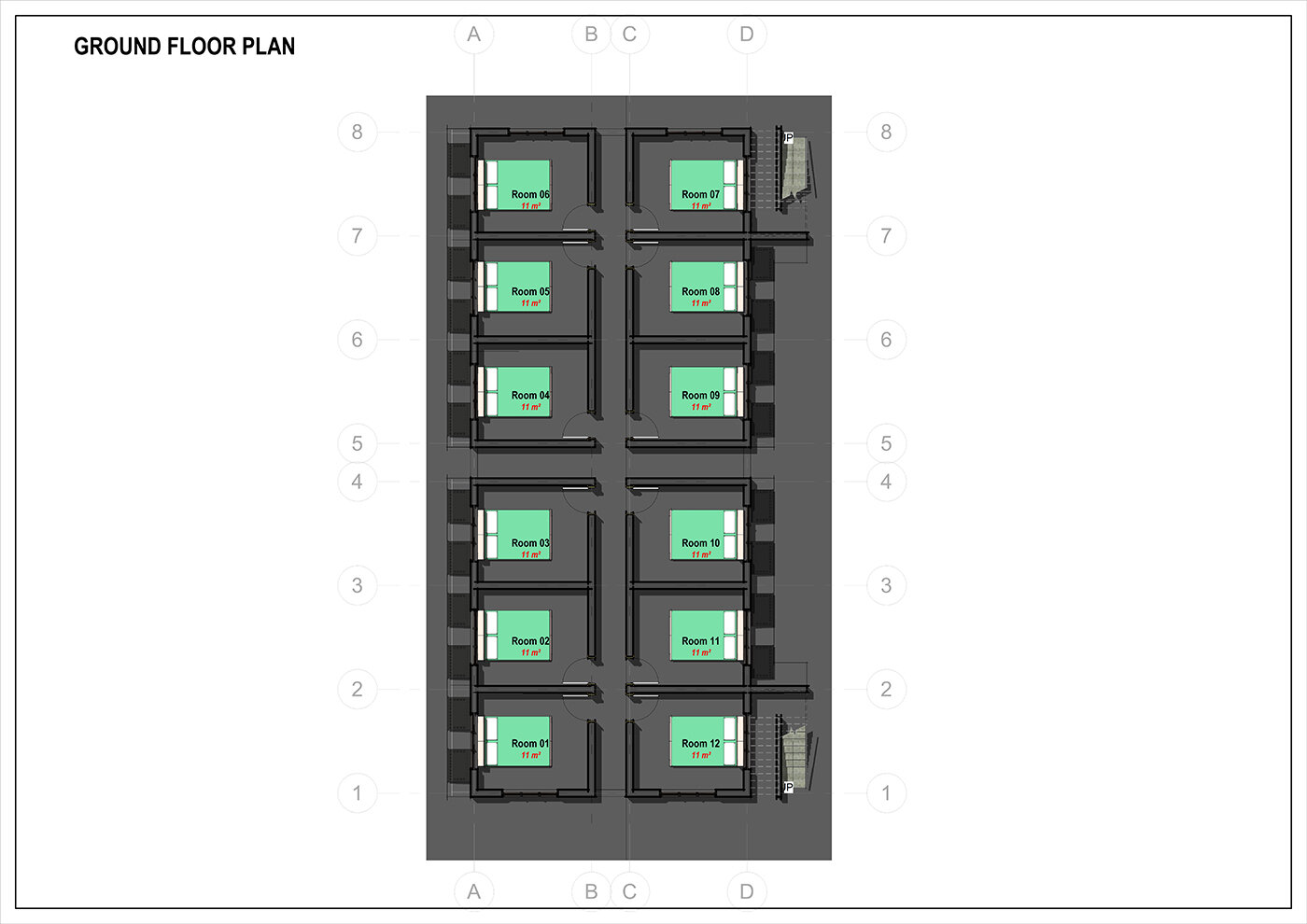
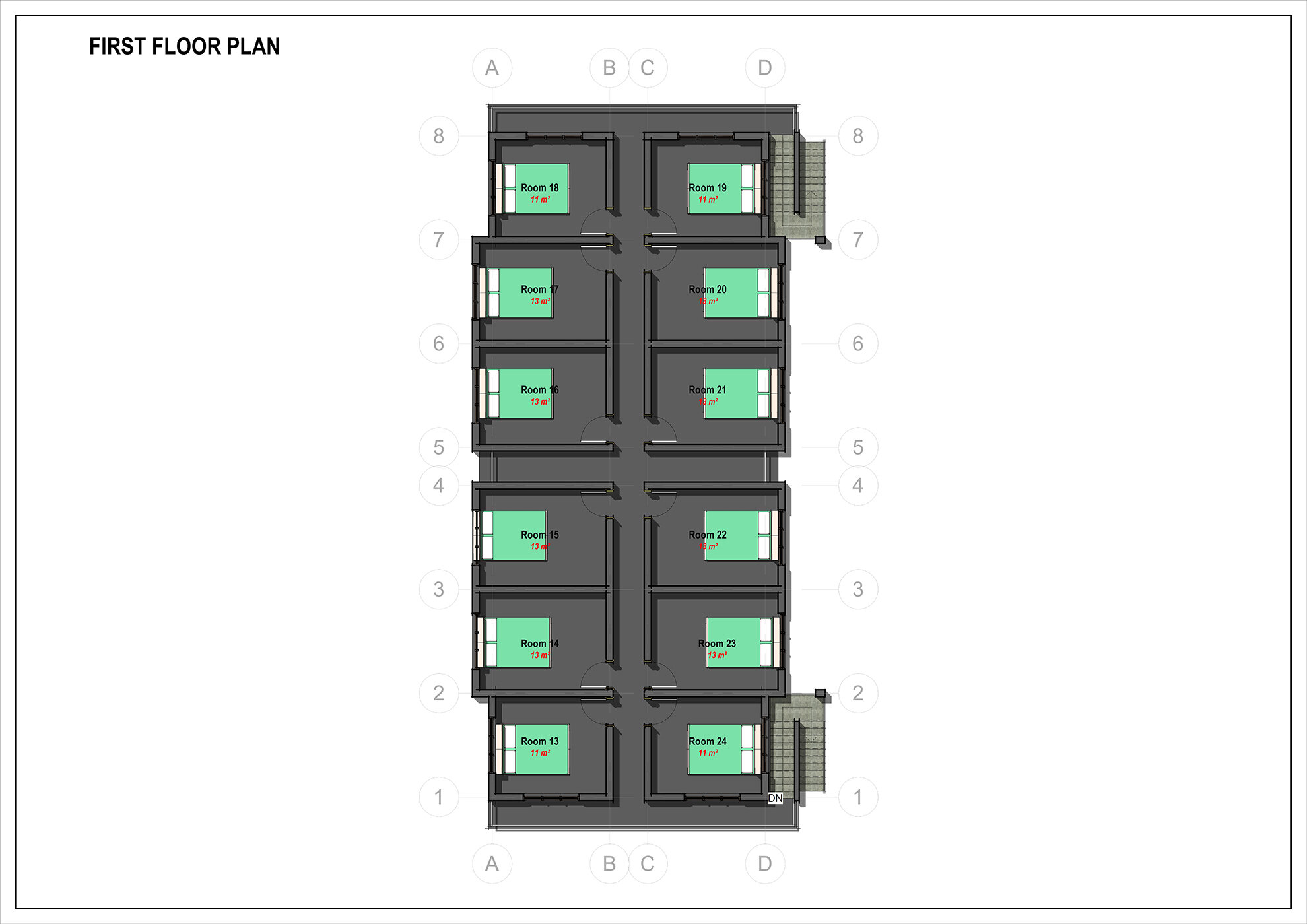
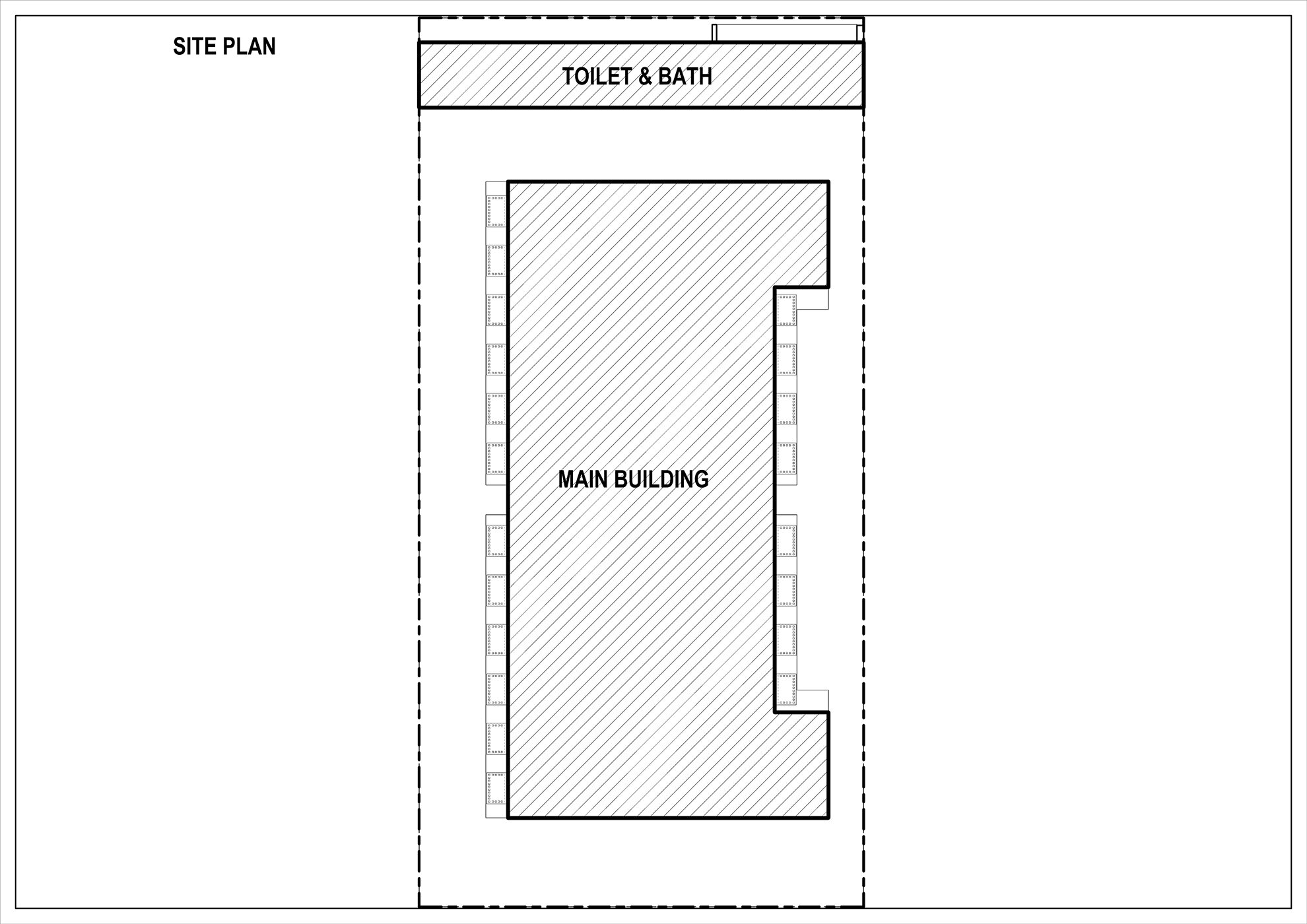
Ayọ̀ Akínwándé, Agboye Compound - Physical and Virtual Tour, 2021, Video Installation.
Design Assistant: Benjamin Udezi
Ayọ̀ Akínwándé, Face-Me-I-Face-You, Hallway - Physical and Virtual Tour, 2021, Video Installation
Design Assistant: Benjamin Udezi
Ayọ̀ Akínwándé, Face-Me-I-Face-You, 2021, Video Installation
Design Assistant: Benjamin Udezi
